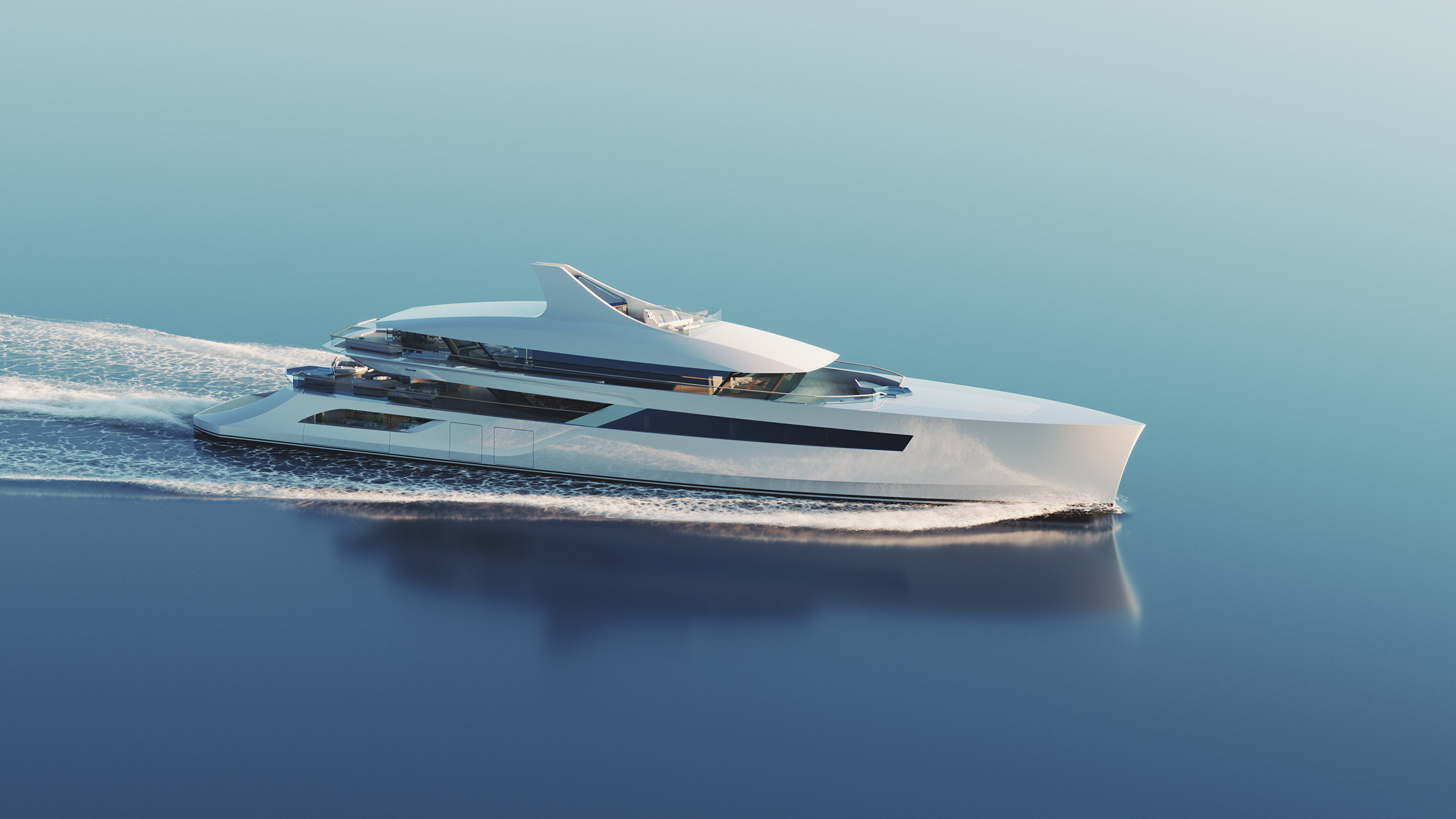
Concept superyachts play a similar role to the concept car, in that they represent a tantalising vision of a future that’s technically just out of reach. The difference, of course, is one of scale; it might cost millions to bring a concept car to physical life, and even more to make it fully functional, but a 75m superyacht concept is only ever going to exist as a virtual proposition.
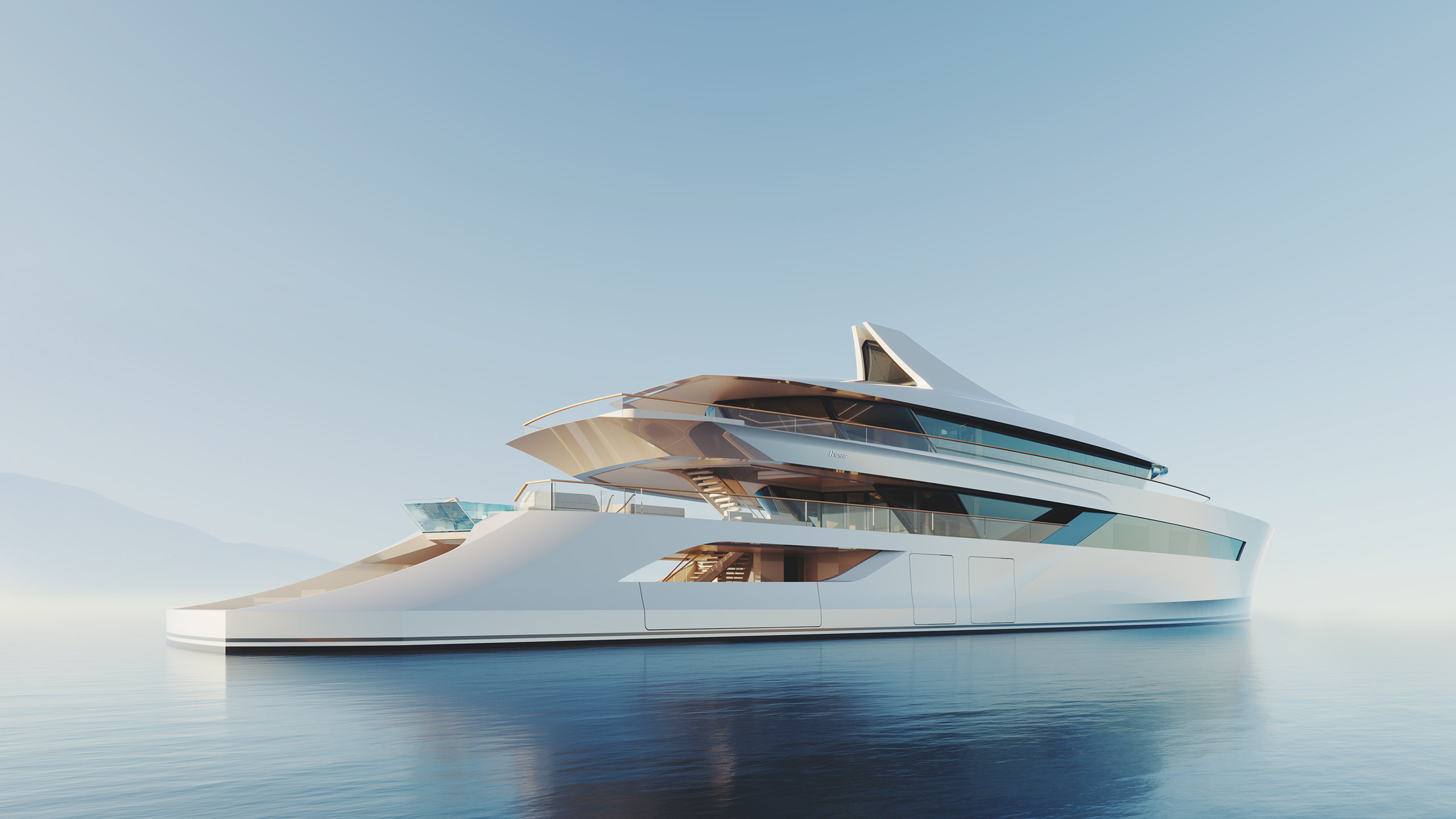
This is the new Feadship Concept C, the Dutch shipyard’s annual foray into the spectacular and speculative that’s timed to drop during the Monaco Yacht Show 2024 (25 – 28 September), the industry’s biggest and most glamorous shindig. A 75m motoryacht, the Concept C exists only as these renderings, but Feadship believes the proposed systems and technologies are very much part of its future.
No one needs a superyacht, let alone deserves one, and some people deserve one rather less than others
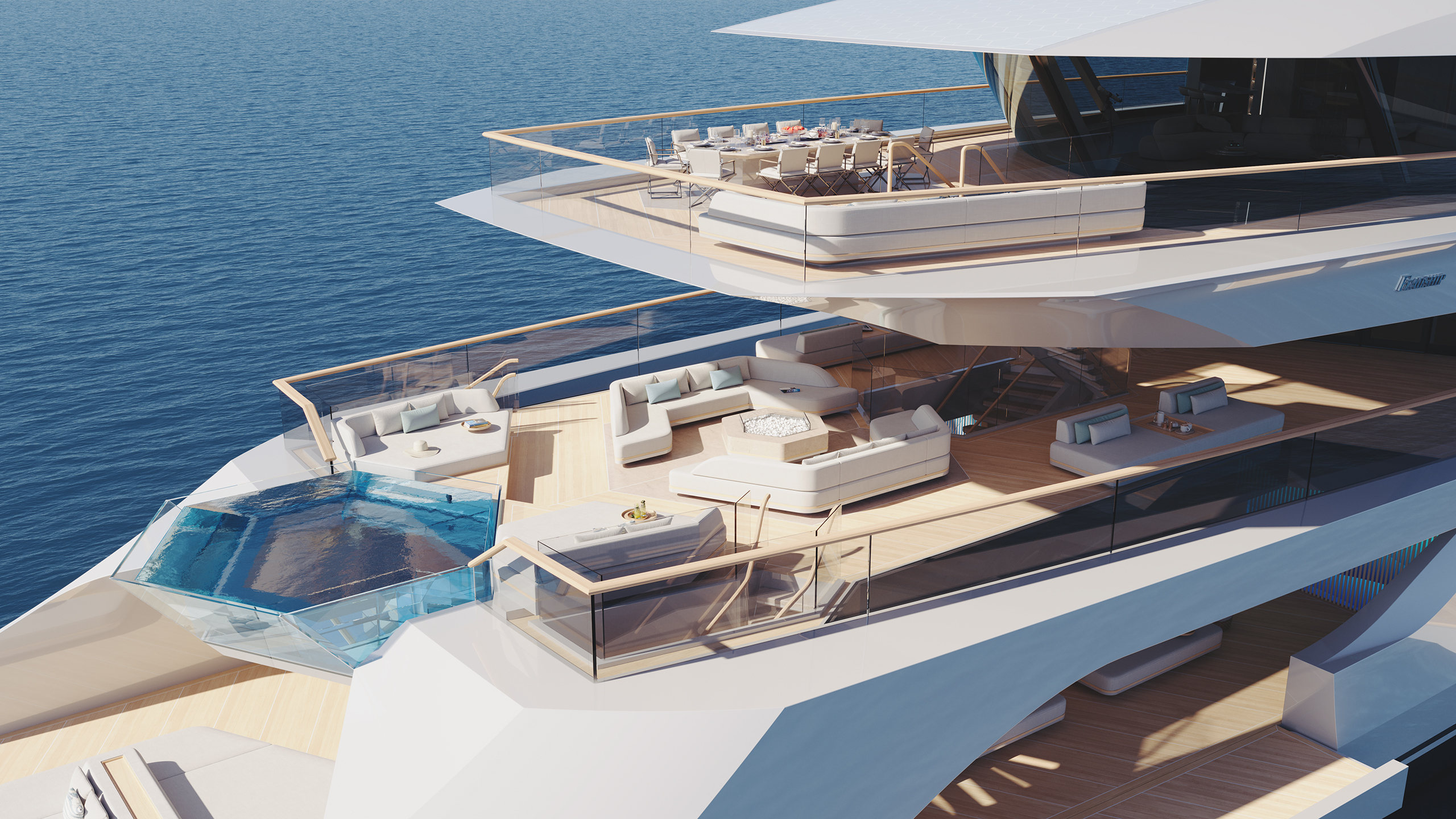
Superyachts have been having a hard time of late, mostly before the court of public opinion. No one needs a superyacht, let alone deserves one, and some people deserve one rather less than others. That hasn’t stopped the apparently undeserving from being the industry’s most important customers. And just as car companies have the thankless task of implementing tasteless customer requests, yacht builders are at the whim of clients and interior designers who believe wholeheartedly in the status value of elaborate soft furnishings.
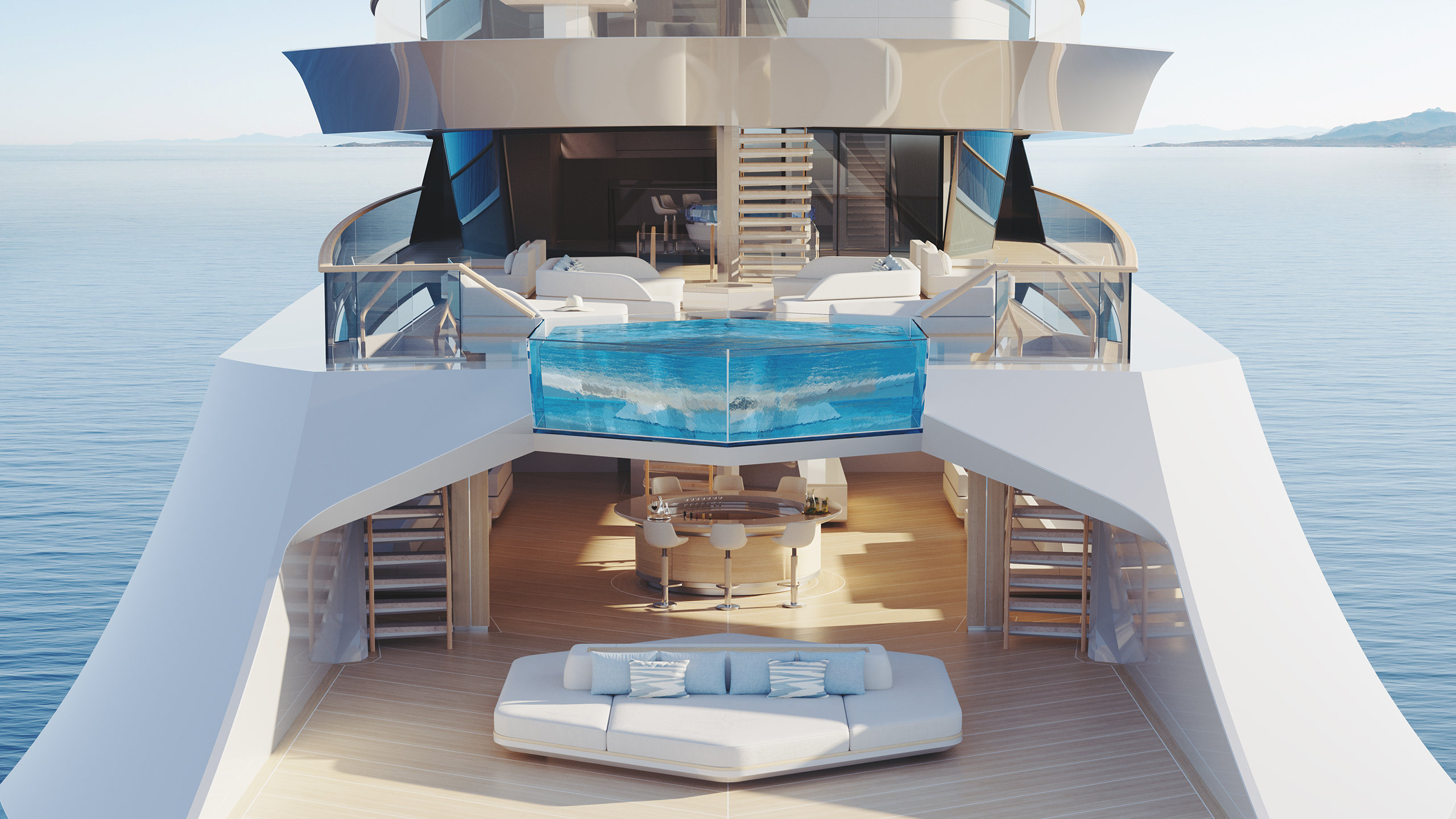
In that respect, a concept yacht is a chance for a boatyard to explore off-kilter aesthetic avenues as well as a refined, tasteful modernity. In the case of Concept C, that task was given to De Voogt Naval Architects, Feadship’s in-house team of designers. Created to celebrate the brand’s 75th anniversary (diamonds are a theme here), the 75m hull has classically elegant proportions (a homage to the late Frits de Voogt, who died in December 2023, and who came to define Feadship’s modern era).
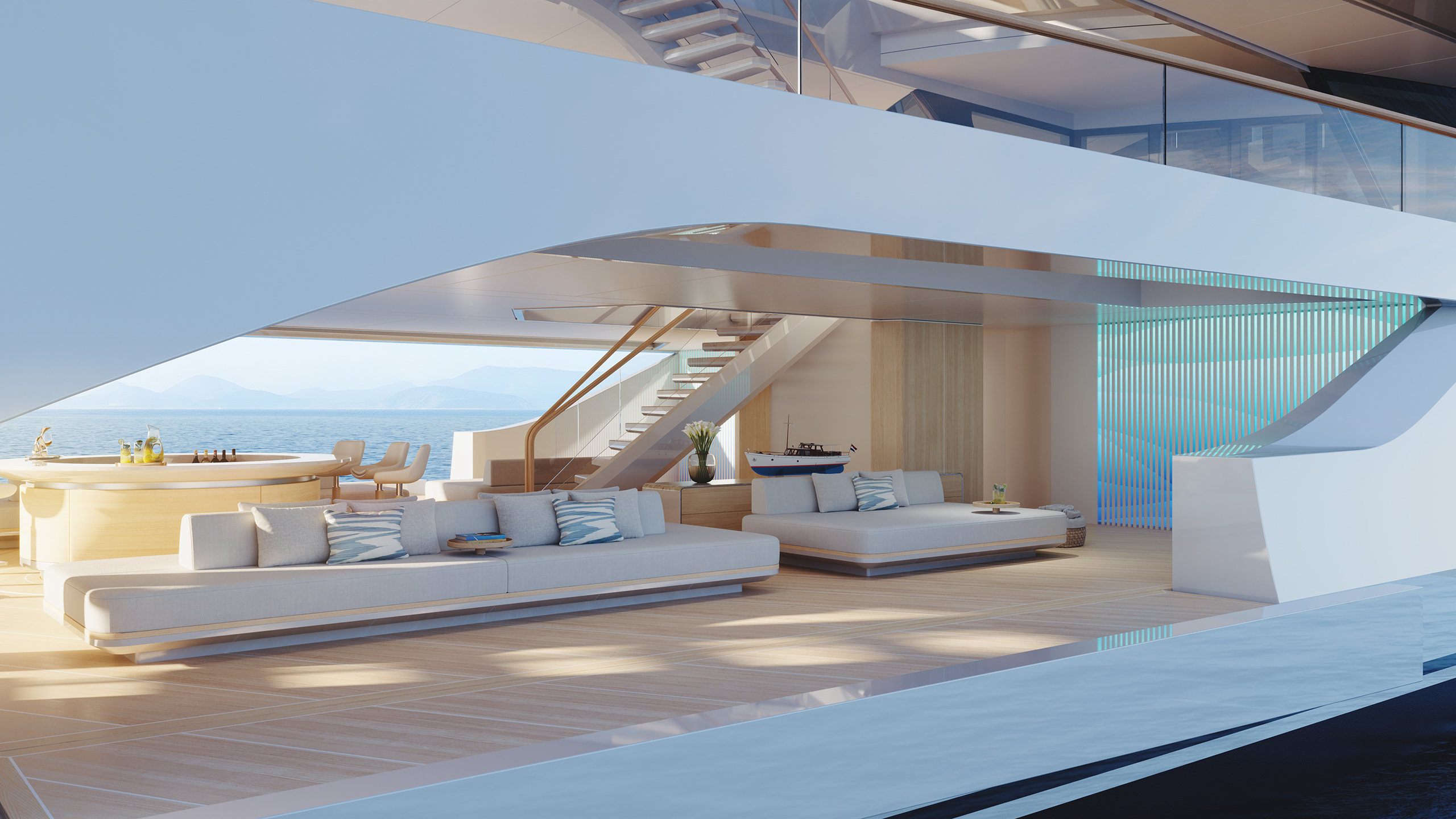
Within that glittering white hull are a number of visual and technical innovations. The diamond theme resurfaces again and again, notably in the faceted edges of the balustrades, the glass-walled pool and even the custom furnishings. At the core of the boat is a glazed atrium, that brings light down into the owner and guest suites below decks.
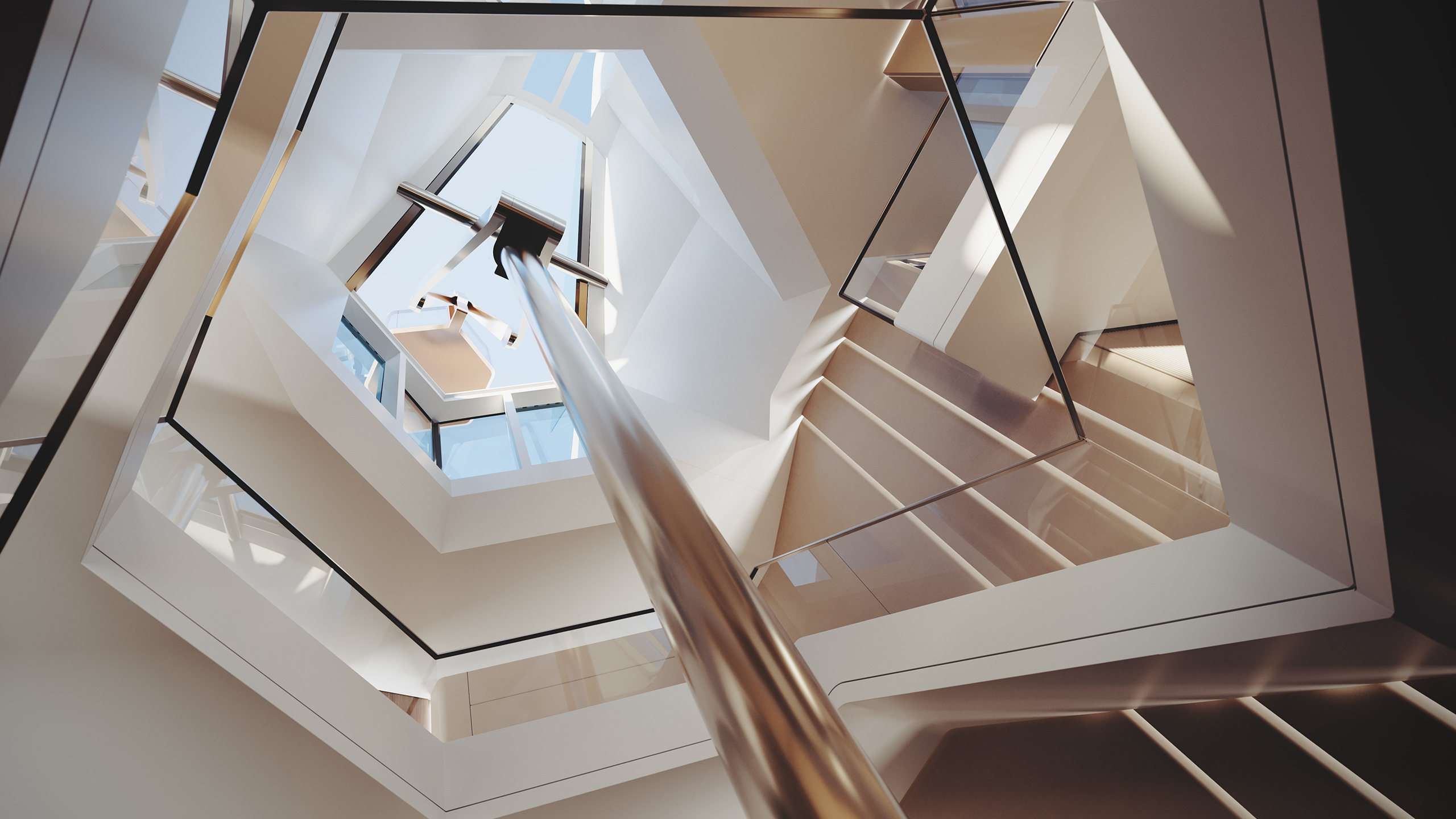
Overseen by senior designer Ruud Bakker, the design team also worked alongside Amsterdam diamond-cutting workshop Gassan Diamonds to explore the art of faceted patterns and the transmission of light. Another source of inspiration was contemporary architecture that blurs the boundaries between indoors and out. As the shipyard notes, ‘these concepts [were used] to amplify guest contact with the sea, a relationship that owners note sadly tends to fade as yachts get larger’.
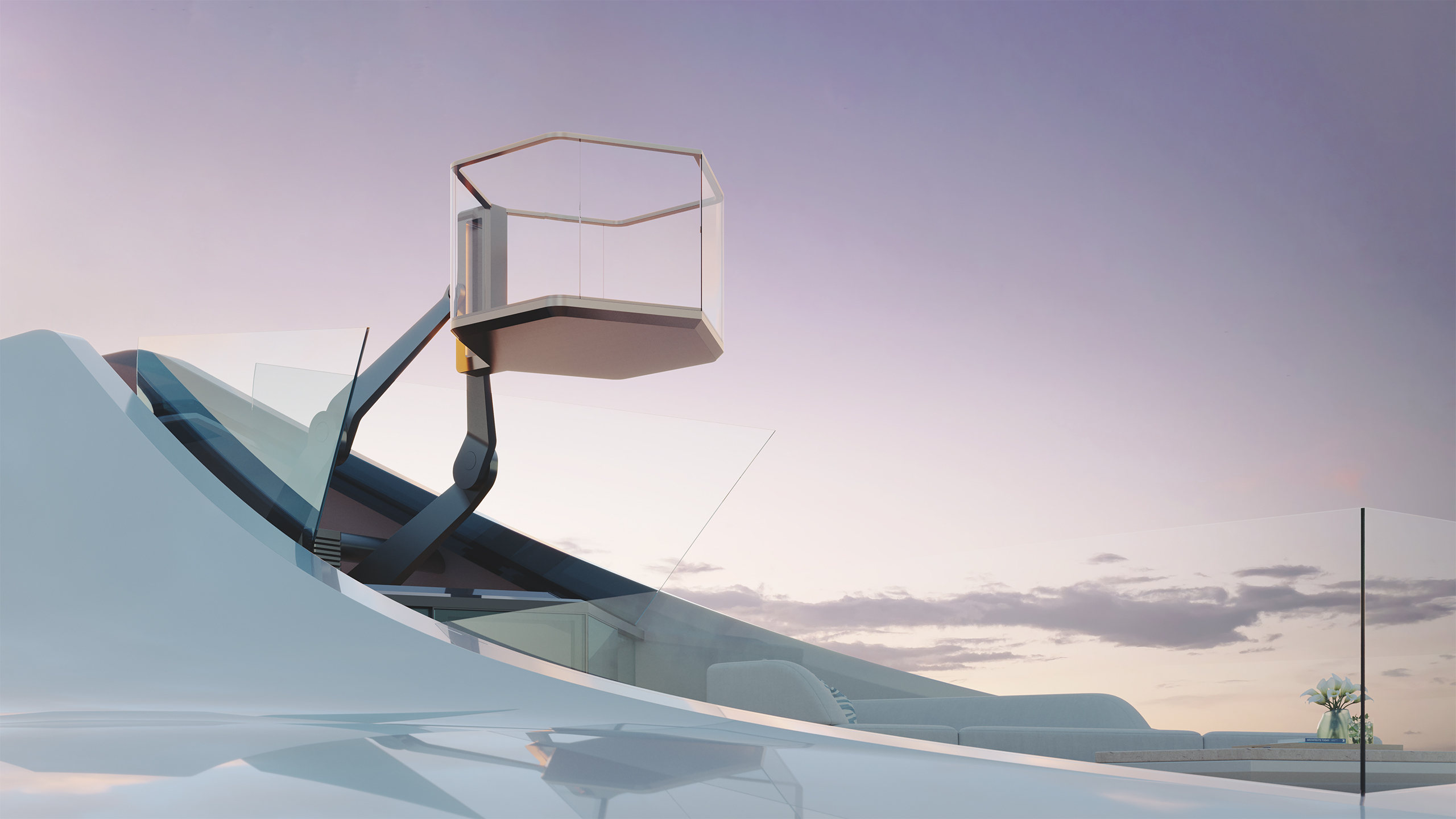
In section, Concept C has a series of half decks, rather than the conventional arrangement, which does away with long corridors, and allows the central atrium to illuminate more levels. A ‘floating’ staircase and platform-style lift move through this vertical space. The latter is a signature feature, rising up to the top of the vessel where it cantilevers out over the upper deck to become a ‘private crow’s nest’. Towards the rear of the hull is a partially enclosed lower deck sea lounge, with side terraces that can be lowered to create an al fresco seating and dining area, along with a bar. Towards the stern, you’ll find a gym and a spa.
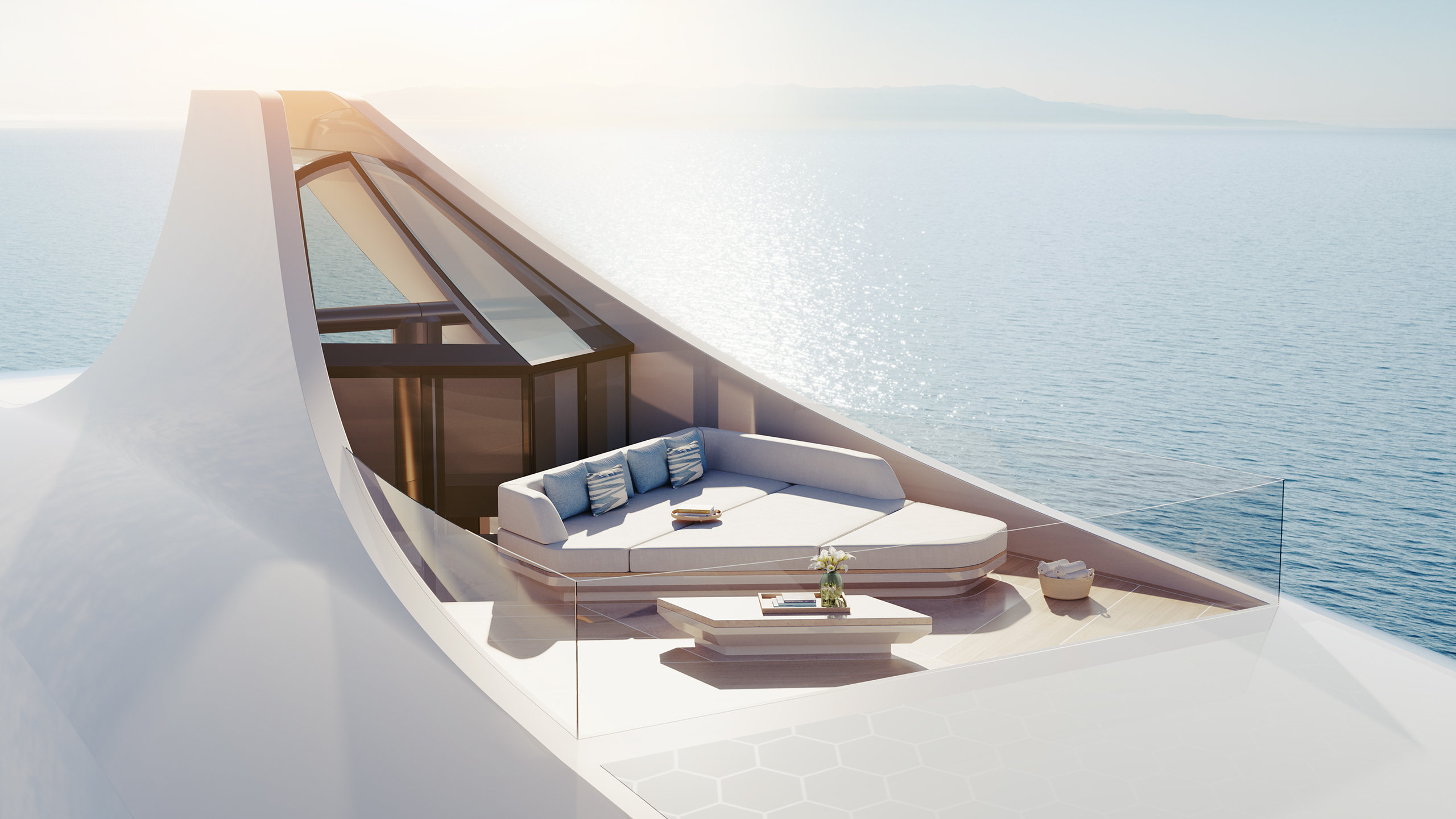
Of course, being fully conceptual means the rigorous detailing and compliance required to bring these features to life hasn’t been fully thought through, let alone costed, but Feadship’s customers are the kind of people who would sign up to bring such ideas to life. On a more practical level, the Concept C showcases pure electric propulsion, a development of the system successfully deployed in the 2015 Savannah, originally commissioned by the late Swedish-Canadian mining magnate Lukas Lundin.
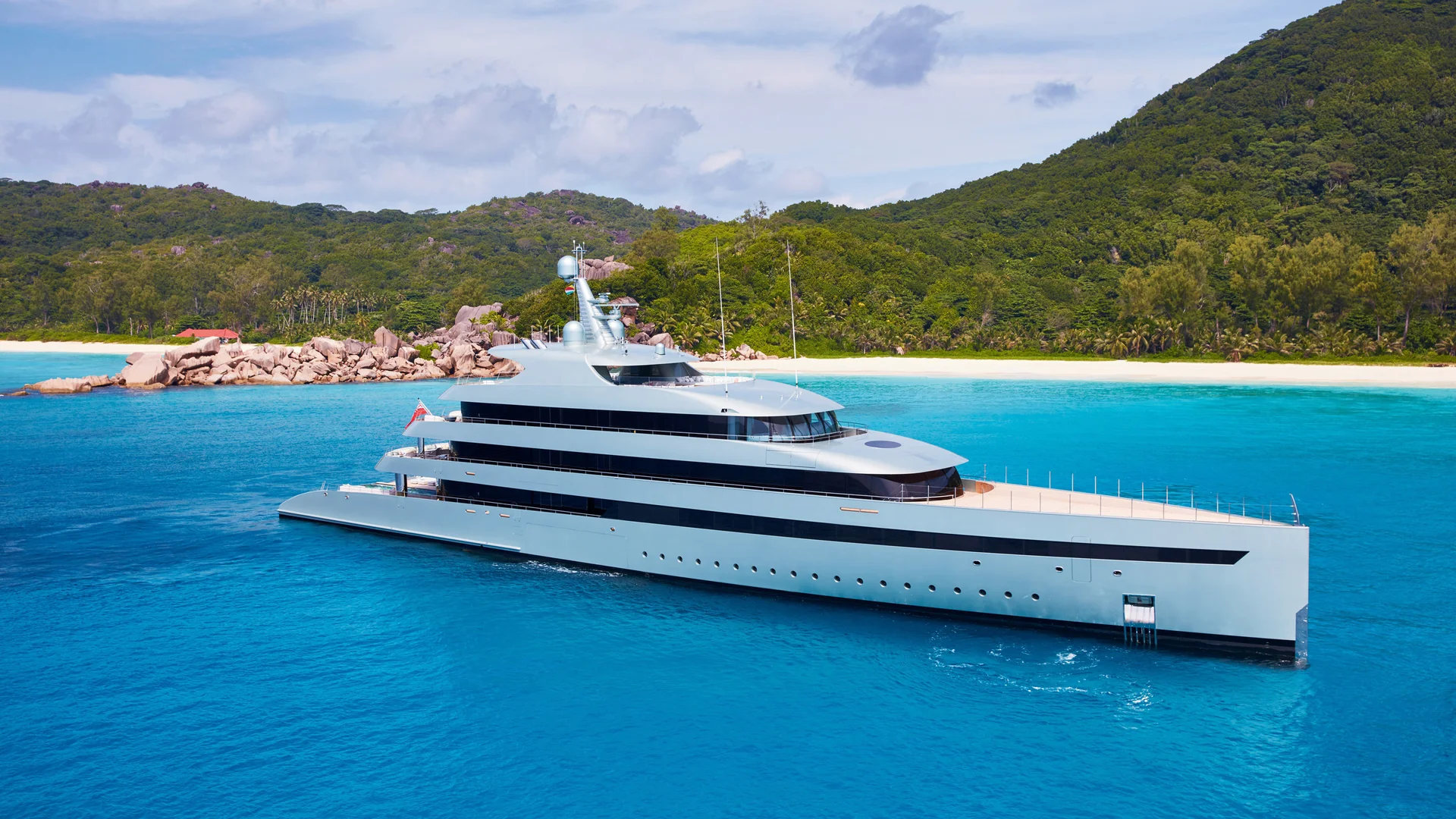
Concept C’s wave-actuated fins can be extended out to generate energy from waves as well as provide additional stabilisation
Further innovations take the form of an onboard DC electrical grid run by methanol-powered fuel cells, paired with lithium-metal batteries. The industry is under pressure to be seen to be working towards more sustainable, efficient methods of propulsion; few modes of transport can match a 75m superyacht in terms of emissions per passenger. Nevertheless, there’s an argument that the heady development costs of hybrid, fuel cell and electric systems are best swallowed by billionaires so they can ultimately filter down to everyone else. C goes even further with its proposed wave-actuated fins, which can be extended out to generate energy from waves as well as provide additional stabilisation.
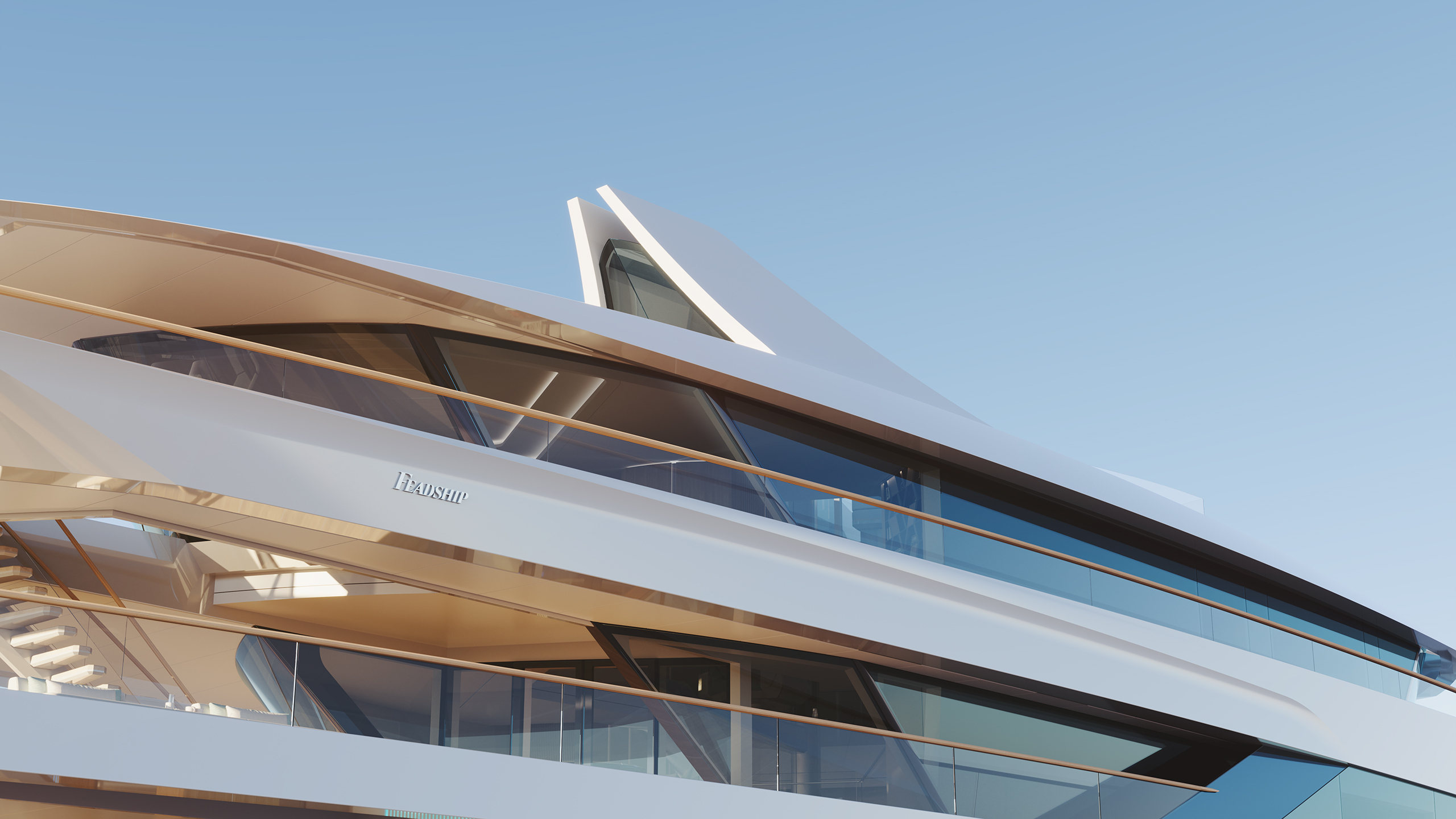
Energy saving is very much the vibe about the concept. Those classic lines and dominant superstructure have the added bonus of shielding glazing from direct sunlight, cutting down on the need for artificial cooling. Feadship is also working on moving its processes to ‘low impact’ steel and aluminium, a long-term ambition to source materials that have a much lower carbon footprint. Suggested accommodation is 12 guests in five staterooms and one owner’s stateroom, while a crew of 19 is required to keep all this ship shape and running smoothly.
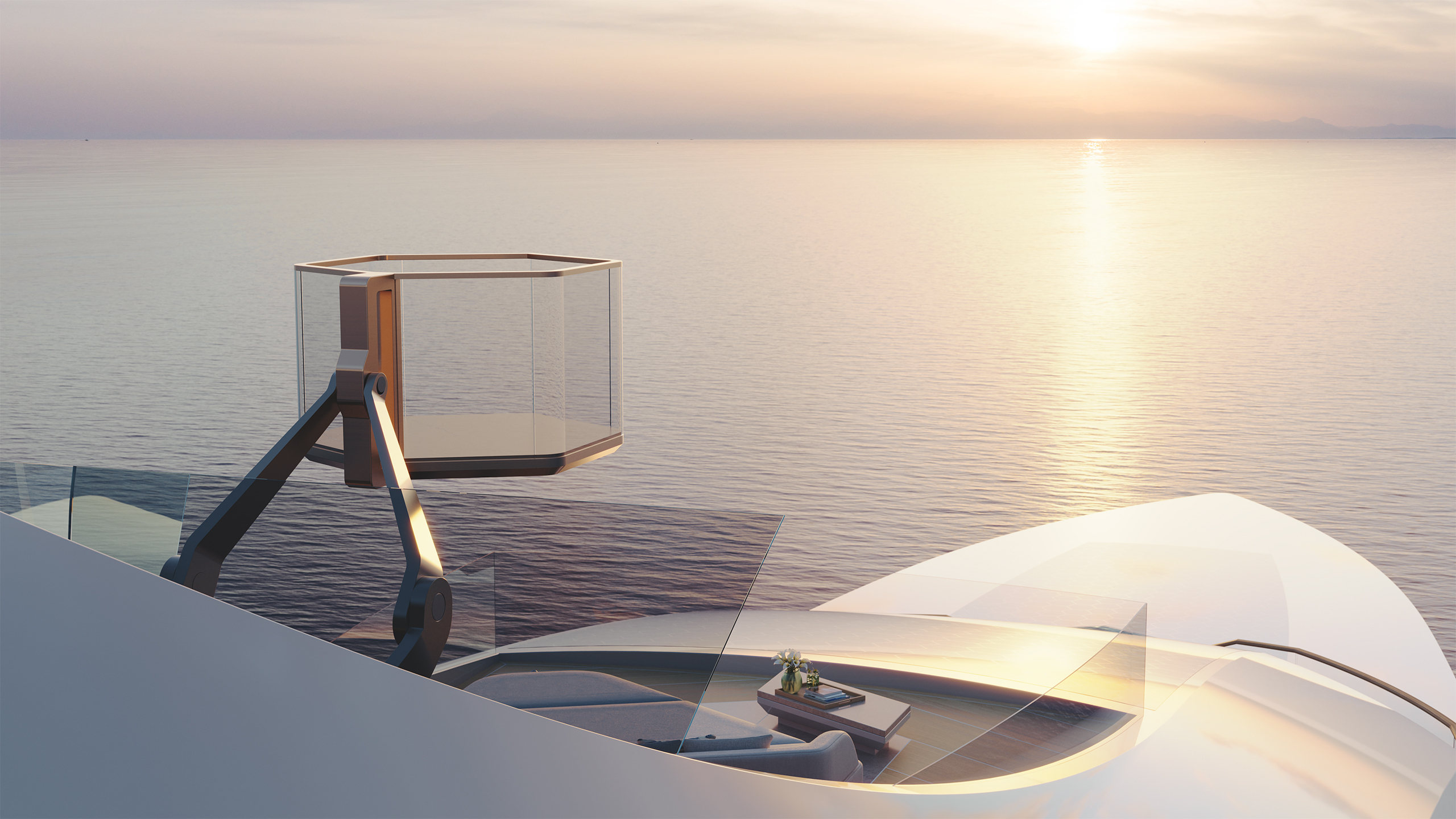
That’s assuming that someone steps forward with the chutzpah and chequebook to make the Concept C happen. ‘We could start building concept C tomorrow or incorporate any of her sparkling innovations in the design development of a full custom Feadship knowing they are truly functional and buildable,’ the shipyard says. It’s more likely that certain facets of this ocean-going diamond will emerge in future builds as the superrich realise that even they are impacted by the world’s finite resources.
Feadship Concept C, Feadship.nl, @Feadship







